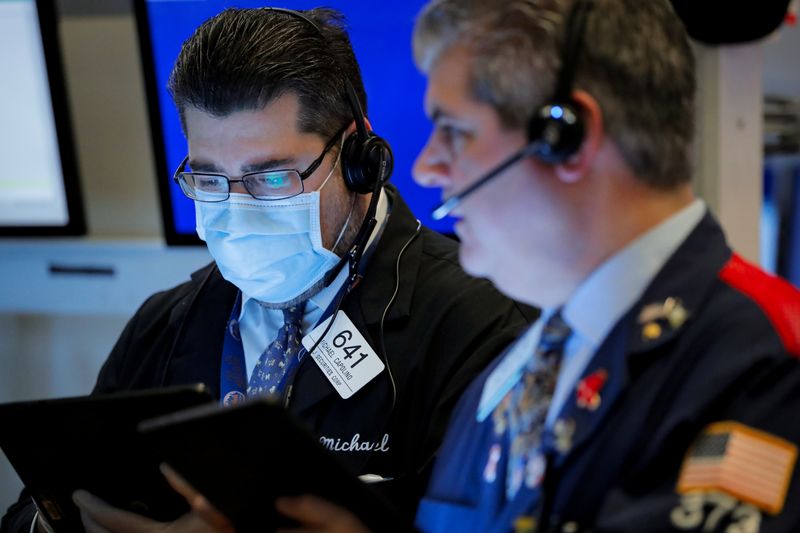LONDON (Reuters) - 1/LOOKING TO CHINA
The world's biggest economy won't be open for business by Easter, as U.S. President Donald Trump had hoped, but the second biggest economy may come close. How China fares offers a guide to other countries when their coronavirus lockdowns lift.
Investors seem optimistic about China's recovery, with fund inflows hitting a 5-year peak late last month. But the risk of a second wave of infections is underscored by China reintroducing some curbs on movement. Any new outbreak would crush confidence and prolong lockdowns elsewhere too.
And the scale of recovery is an open question as global demand for goods languishes. With data coming out with a lag, investors will focus on indicators such as coal consumption (rising, but depressed), cargo handling (about 90% of pre-virus levels in Shanghai last week), gambling (collapsed) and box office takings (negligible). Next week may bring more clarity.
Graphic: China's case count and economic recovery , https://fingfx.thomsonreuters.com/gfx/mkt/yxmvjrxbvrz/Pasted%20image%201585902468566.png
2/WHATEVER IT TAKES AGAIN?
A hectic few days loom for euro zone finance ministry officials, who will be locked in teleconferences debating how best to aid poorer states buckling under the coronavirus strain. It's safe to say a solution that satisfies everyone won't come by the April 9 deadline. The same old fissures remain within the bloc -- Germany and the Netherlands fiercely oppose proposals for joint 'coronabonds', favoured by France, Italy and Spain.
Such an issue would assure poorer countries -- and investors -- that prosperous bloc members stand behind them, keeping borrowing costs in check. But likelier options this time around include credit lines from the euro zone's bailout fund, more lending from the European Investment Bank and using a joint long-term budget directly or for guarantees for leveraged borrowing.
Germany will probably dodge joint bonds this time. But another whatever-it-takes moment is inevitable.
Graphic: Can ECB buying alone contain a rise in borrowing costs?, https://fingfx.thomsonreuters.com/gfx/mkt/qmypmkrjpra/ITDE0304.png
3/A BARREL OF HOPE
Oil price gyrations have added an extra layer of complication to the coronavirus-linked turbulence, crashing 70% from January highs before bouncing on President Donald Trump's claim to have brokered a Saudi-Russia deal to cut output.
Still, sources say the OPEC+ crude oil exporter group - 14 OPEC members and 10 non-members including Russia -- is debating cutting global supply by 10 million barrels per day (bpd). A video conference is scheduled for April 6, the energy minister of non-OPEC crude producer Azerbaijan, said.
But OPEC wants producers from outside the bloc to join the cuts. Canada's Alberta province, home to the world's third-largest oil reserves, has hinted it could comply. But Trump does not plan to ask U.S. producers to curb production.
And a 10 million bpd reduction may not do the trick. Demand has dropped by 30 million barrels bpd, the combined output of Saudi Arabia, Russia and the United States. U.S. storage tanks are brimming, meaning its shale oil firms may have to cut production anyway.
Graphic: Physical oil prices plunge on lack of demand, https://fingfx.thomsonreuters.com/gfx/editorcharts/oakvemegvrd/eikon.png
4/DIVIDEND COUP DE GRACE
Already unloved, euro zone and UK banks have suffered a coup de grace in investors' eyes after bowing to regulators' pressure to defer dividend payments. Latest share price falls have taken the combined value of all listed euro zone banks to just over $280 billion -- dwarfed by the market cap of a U.S. payments firm Visa (NYSE:V).
European lenders' shares were notable underperformers through the past decade but generous dividend yields persuaded some investors to stick with them. Now in addition to not paying dividends, banks must also brace for bad loans to soar as recession hits.
The dividend dilemma now also applies to insurance firms -- they've weathered the current crisis better than banks but calls to suspend dividends battered their shares on Friday.
Meanwhile investors who need returns to meet pension or insurance liabilities, are seeking 'dividend heroes' and Swiss banks might take that role. Having defied regulators' requests on dividends, UBS and Credit Suisse (SIX:CSGN) saw weekly share falls of just 3%-4%. Compare that to double-digit losses at BNP Paribas (PA:BNPP) or HSBC.
Graphic: Euro zone banks , https://fingfx.thomsonreuters.com/gfx/buzzifr/15/8568/8568/Pasted%20Image.jpg
5/DIVIDEND YIELDS BECKONDividends are the hot topic on Wall Street too. The coronavirus selloff makes the S&P 500 look like an oasis for yield-hungry investors, boosting its dividend yield to 2.46%, the highest since 2009, according to Refinitiv.
Simultaneously, investors' flight to safe-haven assets has compressed 10-year government bond yields to record lows. The result: the gap between the S&P 500 dividend yield and 10-year Treasury yields (US10YT=RR) has hit the highest in at least five decades. But the attractive dividend yield levels could be fleeting. As in Europe and Asia, U.S. firms' dividend payments are under a cloud -- thirteen S&P 500 companies reduced future dividends in the March quarter. Ten others suspended dividends, according to S&P Dow Jones.
Graphic: Dividend Yields , https://fingfx.thomsonreuters.com/gfx/mkt/qmyvmamavra/S%20and%20P%20dividends.JPG

